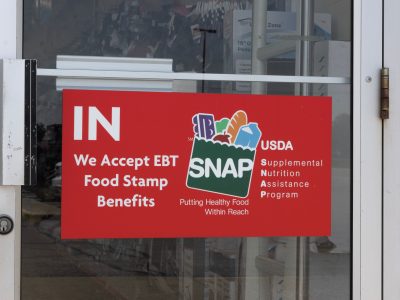Media Tip Sheet: How Will the Banking Crisis of 2023 Affect You?
How will the current banking crisis affect you? Gregory Germain, professor of law at Syracuse University’s College of Law, shared some insight below. If you’re interested in speaking with him for an interview, please reach out to Vanessa Marquette, media relations specialist, at vrmarque@syr.edu.

Professor Germain writes:
“Despite government intervention, it is very hard to tell how safe the banking system really is, and whether these new government backstops are going to end up costing taxpayers. Banks are not required to disclose how much less their bond and loan portfolios are worth due to the rise in interest rates. For example, if a bank paid $1,000 for a 30-year treasury bond that was yielding only 2%, that bond would currently be worth about $650 after interest rates increased to 4%. Yet, the bank would continue to report the bond at its purchase cost of $1,000, and not report its “unrealized loss” of $350. Banks must have also incurred large unrealized losses on their loan portfolios. If a bank made a $100,000 30 year mortgage loan at 3%, the loan would be worth about $50,000 at a market rate of 7%. The regulators claim that banks do not need to report “mark to market” losses on their bond and loan portfolios because they intend to hold these investments to maturity. But these built-in-losses will reduce bank profitability if they have to pay higher market rates to depositors or if they need to sell the bonds or loans to raise funds. The lack of mark-to-market accounting transparency is a legitimate concern because the banking system depends on the trust and confidence of its customers.
So what should you do in this uncertain banking environment? First, you should have no concerns about the safety of your deposits in any insured bank or credit union as long as your deposits are under the $250,000 per person FDIC or NCUA insurance limits. If your bank gets into trouble, the FDIC or NCUA will quickly pay you back for your insured deposits. As long as your deposits are insured, your money is safe.
However, retail banks and credit unions are paying very low rates of interest on your deposits. A smart customer can earn much higher rates of interest through equally safe insured internet banks, treasury bills, and government money market funds. Consumers should shop around for maximum safe rates, keeping minimum amounts in their local banks to cover current expenditures. Money can easily be transferred electronically from other accounts to your local bank within a couple of days as necessary. As consumers move their money to earn higher rates, banks will be forced to compete by raising the interest rates they offer to attract deposits.
Second, there are few (if any) good reasons to keep money in excess of the $250,000 FDIC insurance limits in your bank. Some businesses may need to keep larger balances in their bank accounts to cover daily transactions, but they should be intelligently allocating their money among banks and other investments in a prudent way, both to manage risks and maximize their earnings.
As long as the FDIC is doing their job of assuring that banks are adequately capitalized and properly managed, there is no reason for this mini-panic to have a significant impact on our economy. The government has claimed that taxpayers will not lose any money on its decision to honor all Silicon Valley Bank and Signature Bank deposits, even those not insured, because the banks were amply capitalized to cover all depositor claims.
However, the banking crisis should shed some light on the fragility of our economy. The federal government pulled out all of the stops during the COVID crisis with about $5 trillion in fiscal spending, keeping the federal funds rate below 2%, and dramatically increasing the money supply through its multi-trillion dollar program of quantitative easing. The result was inflation. To stem the tide of inflation, the Federal Reserve has been raising interest rates and reducing its balance sheet and the money supply with quantitative tightening. The rise in interest rates is the direct cause of uncertainty in the banking sector. The difficulty for the Federal Reserve is to rein in inflation without collapsing the economy. It is not an easy job after such extraordinary government intervention during COVID. The government needs to make sure than the arteries of commerce remain open and functional while it restricts the supply of blood.”



